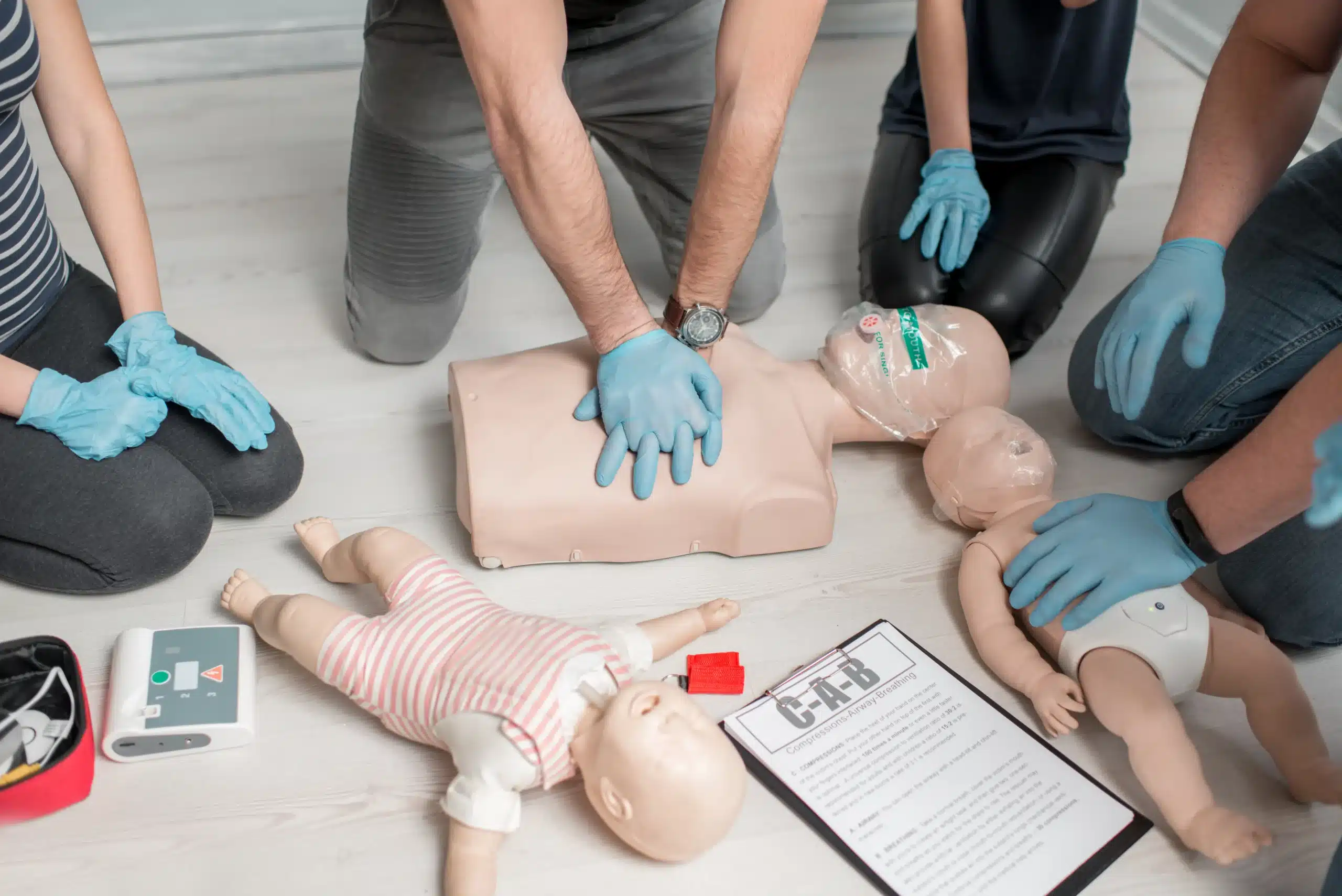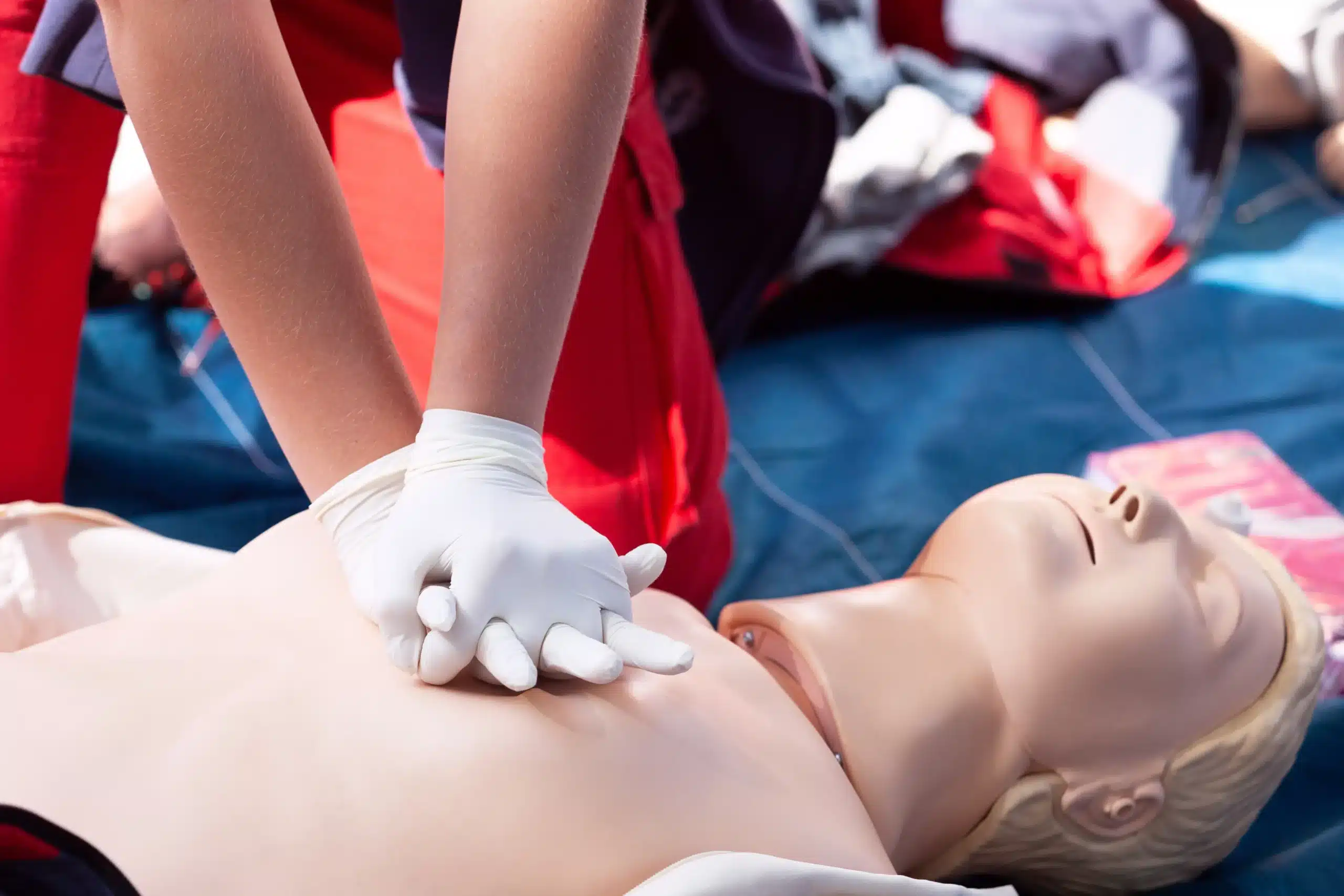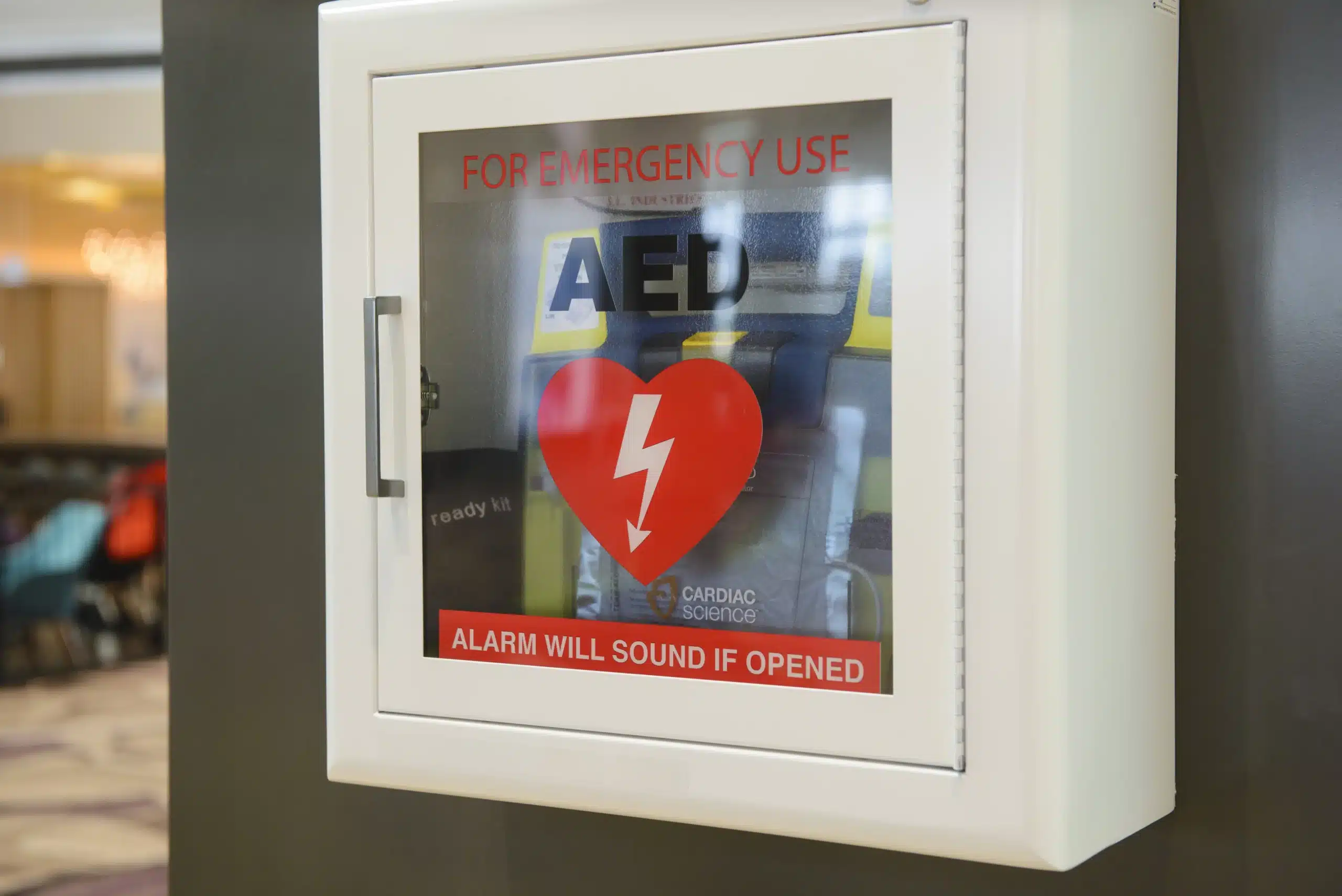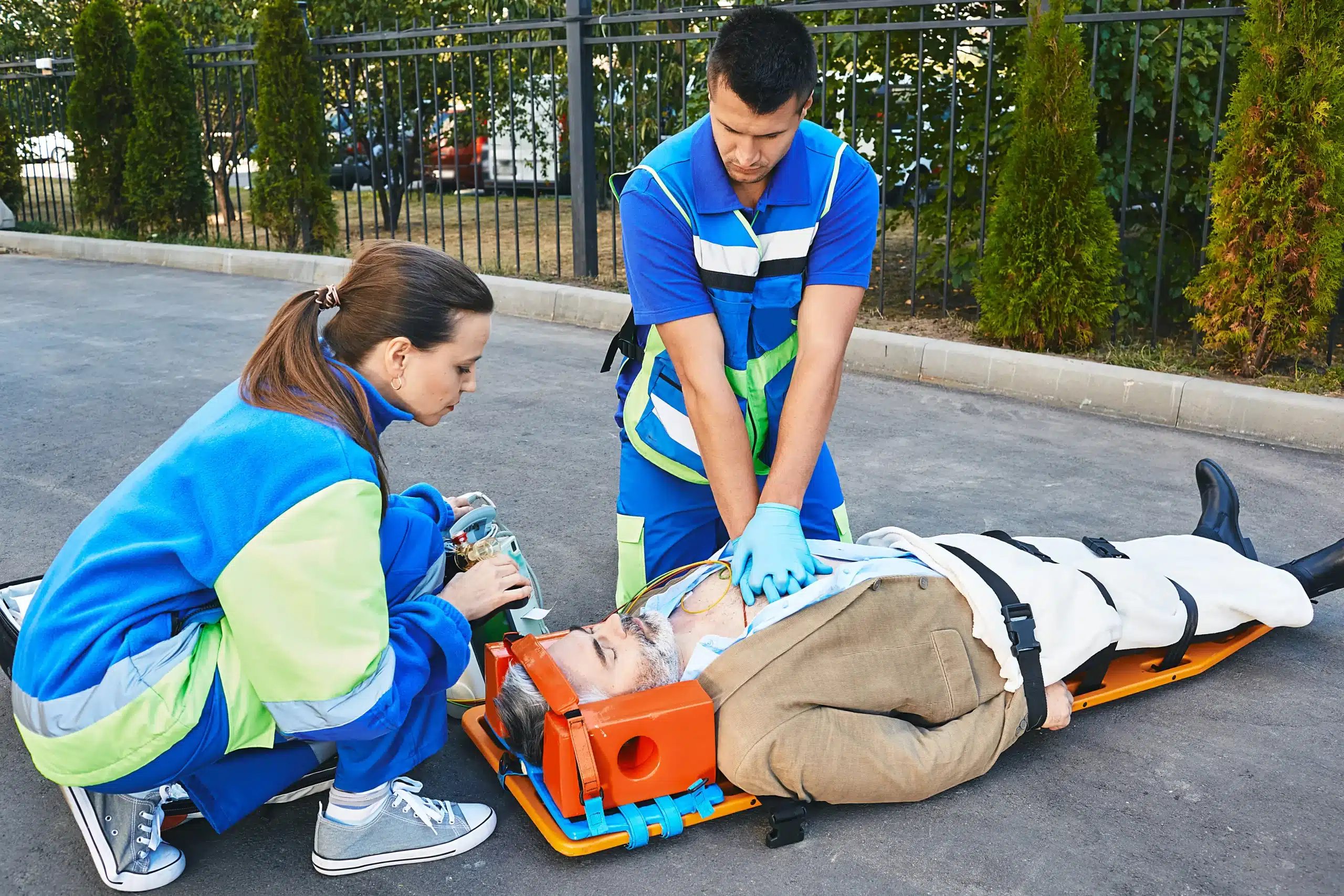Balancing work, life, and continuing education can be a challenge, especially in the demanding field of healthcare. HeartCode PALS offers a solution by providing a flexible, blended learning approach to earning your PALS HeartCode in San Mateo. This article will guide you through everything you need to know about HeartCode PALS, from understanding the blended learning format to finding the right course provider in San Mateo. We’ll cover the prerequisites, discuss the cost and potential discounts, and outline what to expect during both the online and hands-on portions of the training. We’ll also highlight Safety Training Seminars, a trusted provider known for its commitment to excellent customer service and affordable PALS HeartCode courses in San Mateo, Daly City, and Millbrae.
Key Takeaways
- HeartCode PALS blends online learning with hands-on practice: This flexible approach lets you learn the material at your own speed and then refine your skills with an instructor.
- Find the right PALS course for your needs: Consider factors like location, schedule, and cost when choosing a provider in San Mateo. Safety Training Seminars offers convenient options and a low price guarantee.
- Stay current with your PALS certification: Renew your certification every two years and explore continuing education resources to maintain your skills and provide the best possible care.
What is HeartCode PALS and How Does It Differ from Traditional Courses?
HeartCode PALS (Pediatric Advanced Life Support) is a blended learning program that combines online instruction with hands-on skills practice. This approach offers a flexible and engaging way to learn the critical skills needed to respond to pediatric emergencies. Unlike traditional PALS courses, which typically involve classroom lectures and demonstrations, HeartCode PALS allows you to complete a portion of the training at your own pace, followed by an in-person skills session. This blended learning format caters to various learning styles and schedules.
What is blended learning?
Blended learning combines online, self-directed learning with hands-on, in-person training. This means you’ll work through interactive modules, simulations, and case studies online before practicing your skills with an instructor. The American Heart Association offers more information on their PALS course options. This approach allows you to learn the fundamental concepts and procedures at your own speed and then refine your technique under the guidance of a certified instructor.
Key features and benefits of HeartCode PALS
HeartCode PALS stands out with its personalized adaptive learning technology. The program uses an algorithm that adjusts to your individual learning pace and performance. As you progress through the online modules, the program assesses your understanding and confidence level, tailoring the content and challenges to your specific needs. This ensures you focus on areas where you need the most practice and reinforces your strengths. The AHA’s explanation of PALS course options highlights the benefits of this personalized approach.
Personalized learning with adaptive algorithms
The adaptive algorithms in HeartCode PALS create a truly personalized learning experience. The time it takes to complete the online portion will vary based on your existing knowledge and experience. If you’re already familiar with certain concepts, you’ll move through those sections quickly. Conversely, if you need more time to grasp a particular skill, the program will provide additional resources and practice opportunities. This flexibility ensures you master the material thoroughly before moving on to the hands-on skills session. You can find more details about this personalized learning approach on the AHA website.
HeartCode PALS Enrollment: Prerequisites and Requirements
Required Background Knowledge
Before starting HeartCode PALS, you’ll need a solid foundation in basic life support, specifically child and infant BLS. The American Heart Association requires demonstrated competency in these areas, as PALS builds upon these core skills to address pediatric emergencies. While not required for enrollment, reviewing PALS case scenarios beforehand can be beneficial. Once enrolled, you’ll actively participate in three hands-on learning stations covering respiratory issues, rhythm disturbances, and vascular access. These stations provide practical experience, allowing you to apply your knowledge in real-world scenarios. More details on the requirements can be found on the AHA HeartCode PALS FAQ page.
Technical Requirements for the Online Portion
The online component, HeartCode® PALS Online, offers flexibility and convenience. You’ll work through the core curriculum and choose at least six of the nine PALS Plus Advanced eLearning Modules, tailoring the experience to your needs. After completing the online portion, you’ll attend a hands-on skills session with an authorized AHA PALS Instructor to receive your certification. The online curriculum is web-accessible and compatible with common browsers, ensuring easy access from anywhere with a reliable internet connection. You can explore course options and learn more on the American Heart Association website. Additional technical FAQs are addressed in this HeartCode course document.
Find HeartCode PALS Classes in San Mateo
Finding the right HeartCode PALS course in San Mateo means considering a few things: location, schedule, and cost. Let’s explore some options.
HeartCode PALS at Safety Training Seminars
Safety Training Seminars offers American Heart Association certified PALS classes right here in San Mateo. Convenient for those in San Mateo, Daly City, and Millbrae, they offer courses daily and can even come to your location for group training, with discounts available. This flexibility makes fitting training into your schedule much easier. Check their website for information on BLS, CPR and other courses.
Other local providers
While Safety Training Seminars is a solid choice, it’s always good to explore other training providers. Heart Start CPR offers CPR, ACLS, and PALS certification courses at various locations, with certifications valid for two years. A little comparison shopping can help you find the perfect fit.
Flexible scheduling options
Many providers understand busy schedules and offer flexible options. Some, like CPR Training Center, will conduct training at your San Mateo location, eliminating travel time and cost. They also offer group discounts, making it a smart choice for organizations. Look for providers who prioritize convenience and offer options that work for you.
How Much Does HeartCode PALS Cost in San Mateo?
Average pricing and potential discounts
The cost of a HeartCode PALS course in San Mateo typically hovers around $290. This usually covers the online portion, the required skills session, and your PALS certification card. Expect to spend about three to four hours on the online modules, followed by a 30- to 40-minute skills check at a local testing center. Many training providers offer package deals that combine PALS with other certifications such as ACLS, BLS, and First Aid. Bundling these courses can often lead to cost savings. Safety Training Seminars offers various courses and packages.
Safety Training Seminars‘ Low Price Guarantee
Safety Training Seminars is committed to providing affordable, high-quality training and offers a low price guarantee on their American Heart Association PALS courses in Northern California. If you find a lower price for the same AHA PALS course, they’ll match it. This commitment to affordability makes Safety Training Seminars a smart choice for those seeking PALS certification. You can learn more about their low price guarantee.
What to Expect in Your HeartCode PALS Course
This section outlines what you can expect during your HeartCode PALS course, from the initial online modules to the hands-on skills session and final competency testing. Understanding these elements will help you prepare and make the most of your training.
Online Learning Component
HeartCode PALS uses a blended learning approach, combining online learning with a hands-on skills session. The online portion allows you to learn at your own pace, covering essential PALS concepts and procedures. This self-directed learning experience lets you review materials as needed and ensures you have a solid foundation before practicing your skills in person. This flexibility is ideal for busy professionals and anyone who prefers to learn independently.
Hands-on Skills Session
After completing the online modules, you’ll participate in a hands-on skills session. This session typically lasts about five hours, including short breaks. During this time, you’ll work with experienced instructors to practice essential skills like child and infant basic life support (BLS). You’ll also participate in learning stations focused on key areas such as respiratory emergencies, rhythm disturbances, and vascular access. While practicing these case scenarios is required, testing on them is optional. This in-person training is crucial for developing the muscle memory and confidence needed to respond effectively in real-life emergencies.
Course Duration and Competency Testing
The online portion of the HeartCode PALS course is self-paced, so the time it takes to complete varies depending on your prior experience. This adaptive learning format allows learners to move quickly through familiar material and focus on areas where they need more practice. During the hands-on skills session, you’ll be evaluated on your BLS skills for both children and infants. This ensures you meet the American Heart Association’s standards for providing high-quality care in pediatric emergencies. You’ll receive your certification card upon successful completion of both the online component and the hands-on skills session.
Benefits of HeartCode PALS for Healthcare Professionals
Advance Your Career
HeartCode PALS is a valuable asset for healthcare providers looking to advance their careers. Earning your American Heart Association (AHA) PALS Course Completion Card demonstrates your commitment to providing high-quality pediatric care, making you a more competitive candidate. Whether you’re a nurse, paramedic, or physician, this recognized certification opens doors to new opportunities and strengthens your resume. It assures potential employers you possess the essential knowledge and skills to handle pediatric emergencies.
Improve Patient Care
The core purpose of PALS is to equip healthcare professionals with the skills to improve patient outcomes. The PALS Provider Course focuses on recognizing and intervening in pediatric emergencies like respiratory distress, shock, and cardiopulmonary arrest. Mastering these critical skills allows you to provide effective, timely care, ultimately leading to better outcomes for your young patients. This enhanced ability to confidently manage emergencies contributes to a safer healthcare environment.
Learn Efficiently and Flexibly
One of the biggest advantages of HeartCode PALS is its flexible, blended learning format. This approach combines online learning with hands-on skills sessions, allowing you to learn at your own pace and fit the training around your busy schedule. The online portion uses a personalized adaptive algorithm that focuses your learning on areas needing more practice, making the process more efficient. This blended learning style offers convenient online learning combined with the essential practical application of skills. You’ll gain the knowledge and confidence you need through a combination of online and in-person training.
Addressing Common Concerns About HeartCode PALS
It’s understandable to have questions about online learning, especially for a crucial skill set like PALS. Let’s address some common concerns head-on.
Is online learning effective?
Yes! HeartCode PALS uses a blended learning approach, combining online coursework with a required in-person skills session. This format offers the best of both worlds: you can learn the cognitive material at your own pace, then practice your skills with expert instructors. This flexible approach allows you to fit training into your busy schedule while still receiving thorough, hands-on instruction.
Skill proficiency and certification validity
The skills and information taught in HeartCode PALS are identical to those covered in traditional, instructor-led courses. Whether you choose online or in-person learning, you’ll receive the same American Heart Association (AHA) PALS Course Completion Card upon successful completion of both the online modules and the hands-on skills checkoff. Both course formats follow the same AHA science-based guidelines and lead to the same recognized certification.
Support resources for hesitant learners
We understand that online learning isn’t for everyone. If you’re feeling a little hesitant, know that the hands-on skills session is there to support you. You complete the online portion first, then schedule your skills session. This allows you to absorb the material thoroughly before putting your knowledge into practice. For experienced pediatric healthcare providers seeking more advanced training, the AHA also offers the PALS Plus Course, developed in collaboration with the American Academy of Pediatrics.
Why Choose Safety Training Seminars for HeartCode PALS?
When it comes to something as critical as PALS certification, you want training that’s both thorough and convenient. Safety Training Seminars offers a superior learning experience, combining online flexibility with in-person skill development. Here’s why we stand out:
Experienced Instructors and State-of-the-Art Facilities
Our San Mateo location provides American Heart Association certified courses led by experienced professionals. These instructors bring real-world expertise to the classroom, creating an engaging and supportive learning environment. You’ll learn in a modern facility equipped to enhance your understanding of PALS protocols. We serve San Mateo, Daly City, and Millbrae, CA.
Commitment to Customer Satisfaction
We’re committed to providing high-quality training that equips you with the confidence to respond effectively in pediatric emergencies. Our program emphasizes practical skills and confidence-building, ensuring you’re fully prepared to apply your knowledge. We also offer a low price guarantee, making top-tier training accessible.
Ongoing Support and Resources
Your learning doesn’t end when you leave the classroom. We offer access to review videos to reinforce your skills and increase your chances of passing the skills test. You’ll receive your certification card the same day you complete your in-person skills session, so you can put your new credentials to work right away. We’re dedicated to supporting you throughout your PALS journey, providing the resources you need to maintain your skills and confidence.
Maintain Your HeartCode PALS Certification
Keeping your HeartCode PALS certification current is vital for providing the best possible care. This section covers renewal requirements and ways to enhance your skills.
Renewal requirements and continuing education
Your HeartCode PALS certification is valid for two years. After this period, you’ll need to renew it to stay up-to-date on the latest pediatric advanced life support practices. Most providers issue certificates the same day you complete the course, simplifying the process of maintaining your credentials. Check with your chosen provider, like Safety Training Seminars, for their specific renewal process. You can also find helpful information on PALS renewal from providers like Heart Start CPR.
Additional resources for ongoing skill development
Beyond renewing your certification, continuous learning is key to refining your skills. The full HeartCode PALS course often includes online modules like HeartCode® PALS Online and PALS Plus Advanced eLearning Modules. These resources from the American Heart Association offer convenient ways to review important concepts and maintain proficiency. Regularly reviewing airway management protocols and practicing these techniques is crucial, especially for pediatric healthcare providers. For further development, consider the AHA’s updated PEARS (Pediatric Emergency Assessment, Recognition and Stabilization) Course, which reflects the latest science in pediatric emergency care. Heart Start CPR also offers insights into common PALS mistakes and how to avoid them.
Related Articles
- AHA PALS Classes in San Mateo, CA – San Mateo CPR Classes
- CPR Certification in San Mateo: Your Guide – San Mateo CPR Classes
- First Aid Training Courses in San Mateo: A Practical Guide – San Mateo CPR Classes
- American Heart Association Course – San Mateo CPR Classes
- CPR, BLS, ACLS, PALS, & First-aid Classes in San Mateo, CA
Frequently Asked Questions
What exactly is involved in the HeartCode PALS blended learning format?
HeartCode PALS blends online learning with a hands-on skills session. You’ll first complete interactive modules, simulations, and case studies online at your own speed. This is followed by an in-person session where you’ll practice your skills with a certified instructor.
Do I need any prior knowledge before taking a HeartCode PALS course?
Yes, you’ll need a solid understanding of basic life support, particularly child and infant BLS. The PALS course builds upon these fundamental skills. While pre-studying PALS scenarios isn’t mandatory, it can be helpful.
How long does it take to complete the HeartCode PALS course?
The online portion is self-paced, so the time varies depending on your existing knowledge. The in-person skills session typically lasts a few hours. Many providers offer flexible scheduling to accommodate busy schedules.
How much does HeartCode PALS certification cost, and are there any discounts available?
The cost generally ranges around $290 in San Mateo, covering both the online and in-person components. Look for providers offering package deals that combine PALS with other certifications like ACLS or BLS for potential savings. Safety Training Seminars, for example, has a low price guarantee.
How do I maintain my HeartCode PALS certification after I’ve earned it?
Your PALS certification is valid for two years. To renew, you’ll need to retake the course. Check with your training provider for their specific renewal process and any available continuing education resources. Staying current with the latest guidelines is essential for providing effective care.






